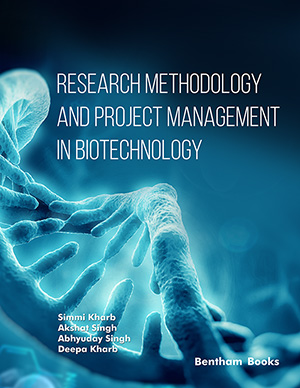
Abstract
Recent advances in biotechnology have promoted biomolecular targeting of drugs, peptides and genes in the treatment and management of major diseases and infections. Therapeutic development of drugs and delivery systems may have various objectives: Systemic drugs require optimal delivery and uptake at target sites; peptide drugs require alternative routes of administration, such as nasal or intestinal absorption; gene medicines need to be delivered efficiently, safely and selectively to diseased areas. The propensity of ligand-modified liposomes to carry drugs and genes to desirable sites has been extensively examined and current reports show considerable progress in this field. Sterylglucoside (SG) is a novel absorption-enhancer of peptide drugs across nasal and intestinal mucosae. Physico-chemical properties and biodistribution of liposomes incorporating SG were studied and compared against the profiles of aglycon and sitosterol derivatives of SG. It was shown that SG particles aided colon drug delivery and increased bioavailability of peptide drugs after nasal and intestinal administration. In addition, they were able to enhance anticancer effects in liver cancer chemotherapy. Biological fate and interaction of SG with hepatocytes support the novel proposition of liver-targeting SGliposomes.
Keywords: sterylglucoside, absorption enhancer, insulin, nasal absorption, nanoparticle, colon drug delivery, liver-targeting, anti-tumour drug
Current Pharmaceutical Biotechnology
Title: Application of Sterylglucoside-Containing Particles for Drug Delivery
Volume: 6 Issue: 1
Author(s): Yoshie Maitani, Koji Nakamura and Kumi Kawano
Affiliation:
Keywords: sterylglucoside, absorption enhancer, insulin, nasal absorption, nanoparticle, colon drug delivery, liver-targeting, anti-tumour drug
Abstract: Recent advances in biotechnology have promoted biomolecular targeting of drugs, peptides and genes in the treatment and management of major diseases and infections. Therapeutic development of drugs and delivery systems may have various objectives: Systemic drugs require optimal delivery and uptake at target sites; peptide drugs require alternative routes of administration, such as nasal or intestinal absorption; gene medicines need to be delivered efficiently, safely and selectively to diseased areas. The propensity of ligand-modified liposomes to carry drugs and genes to desirable sites has been extensively examined and current reports show considerable progress in this field. Sterylglucoside (SG) is a novel absorption-enhancer of peptide drugs across nasal and intestinal mucosae. Physico-chemical properties and biodistribution of liposomes incorporating SG were studied and compared against the profiles of aglycon and sitosterol derivatives of SG. It was shown that SG particles aided colon drug delivery and increased bioavailability of peptide drugs after nasal and intestinal administration. In addition, they were able to enhance anticancer effects in liver cancer chemotherapy. Biological fate and interaction of SG with hepatocytes support the novel proposition of liver-targeting SGliposomes.
Export Options
About this article
Cite this article as:
Maitani Yoshie, Nakamura Koji and Kawano Kumi, Application of Sterylglucoside-Containing Particles for Drug Delivery, Current Pharmaceutical Biotechnology 2005; 6 (1) . https://dx.doi.org/10.2174/1389201053167194
| DOI https://dx.doi.org/10.2174/1389201053167194 |
Print ISSN 1389-2010 |
| Publisher Name Bentham Science Publisher |
Online ISSN 1873-4316 |
Call for Papers in Thematic Issues
Artificial Intelligence in Bioinformatics
Bioinformatics is an interdisciplinary field that analyzes and explores biological data. This field combines biology and information system. Artificial Intelligence (AI) has attracted great attention as it tries to replicate human intelligence. It has become common technology for analyzing and solving complex data and problems and encompasses sub-fields of machine ...read more
Latest Advancements in Biotherapeutics.
The scope of this thematic issue is to comprehensively explore the rapidly evolving landscape of biotherapeutics, emphasizing breakthroughs in precision medicine. Encompassing diverse therapeutic modalities, the issue will delve into the latest developments in monoclonal antibodies, CRISPR/Cas gene editing, CAR-T cell therapies, and innovative drug delivery systems, such as nanoparticle-based ...read more
Machine Learning and Artificial Intelligence for Medical Data Analysis and Human Information Analysis in Healthcare
The intersection of machine learning (ML) and artificial intelligence (AI) with the pharmaceutical industry is revolutionizing traditional paradigms in drug discovery and development. These technologies have introduced innovative approaches to analyzing complex datasets and predicting chemical properties, leading to more efficient identification and optimization of drug candidates. By employing sophisticated ...read more
 19
19
- Author Guidelines
- Graphical Abstracts
- Fabricating and Stating False Information
- Research Misconduct
- Post Publication Discussions and Corrections
- Publishing Ethics and Rectitude
- Increase Visibility of Your Article
- Archiving Policies
- Peer Review Workflow
- Order Your Article Before Print
- Promote Your Article
- Manuscript Transfer Facility
- Editorial Policies
- Allegations from Whistleblowers
Related Articles
-
Is Metformin a Therapeutic Paradigm for Colorectal Cancer: Insight into the Molecular Pathway?
Current Drug Targets Synthesis and Antitumor/Antiviral Evaluation of 6–Thienyl–5–cyano-2–thiouracil Derivatives and Their Thiogalactosides Analogs
Current Organic Synthesis Xanthone Derivatives: New Insights in Biological Activities
Current Medicinal Chemistry In Vivo Space Radiation-Induced Non-Targeted Responses: Late Effects on Molecular Signaling in Mitochondria
Current Molecular Pharmacology Dendrimer-Based Nanosized MRI Contrast Agents
Current Pharmaceutical Biotechnology Protein Informatics and Vaccine Development: Cancer Case Study
Current Topics in Medicinal Chemistry Current and Proposed Biomarkers of Anthracycline Cardiotoxicity in Cancer: Emerging Opportunities in Oxidative Damage and Autophagy
Current Molecular Medicine Implications of IFN-γ-Mediated Tryptophan Catabolism on Solid Organ Transplantation
Current Drug Metabolism Neuroimaging of Non-Accidental Injury
Current Pediatric Reviews Novel Drug Therapies for Fertility Preservation in Men Undergoing Chemotherapy: Clinical Relevance of Protector Agents
Current Medicinal Chemistry Editorial
Current Medical Imaging Molecular Imaging Aided Improvement in Drug Discovery and Development
Current Biotechnology From Bortezomib to other Inhibitors of the Proteasome and Beyond
Current Pharmaceutical Design microRNAs and Esophageal Cancer - Implications for Pathogenesis and Therapy
Current Pharmaceutical Design A Critical Approach of Guideline Therapeutic Recommendations for NAFLD
Current Vascular Pharmacology Nanoemulsion: A Novel Eon in Cancer Chemotherapy
Mini-Reviews in Medicinal Chemistry GSK3 Inhibitors in the Therapeutic Development of Diabetes, Cancer and Neurodegeneration: Past, Present and Future
Current Pharmaceutical Design Effects of Kojic Acid-mediated Sonodynamic Therapy as a Matrix Metalloprotease-9 Inhibitor against Oral Squamous Cell Carcinoma: A Bioinformatics Screening and <i>In Vitro</i> Analysis
Current Drug Discovery Technologies Epigenetic Control Using Natural Products and Synthetic Molecules
Current Medicinal Chemistry Apigenin, A Plant Flavone Playing Noble Roles in Cancer Prevention Via Modulation of Key Cell Signaling Networks
Recent Patents on Anti-Cancer Drug Discovery


























